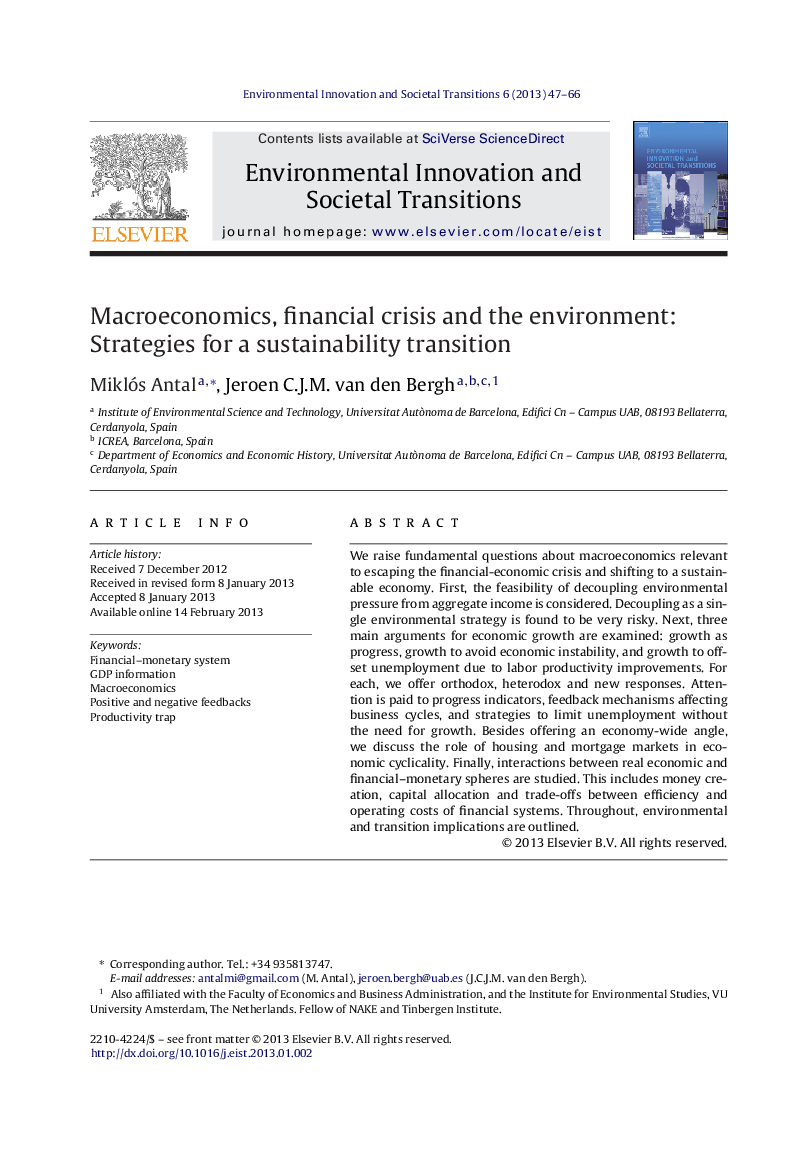| کد مقاله | کد نشریه | سال انتشار | مقاله انگلیسی | نسخه تمام متن |
|---|---|---|---|---|
| 108283 | 161894 | 2013 | 20 صفحه PDF | دانلود رایگان |
We raise fundamental questions about macroeconomics relevant to escaping the financial-economic crisis and shifting to a sustainable economy. First, the feasibility of decoupling environmental pressure from aggregate income is considered. Decoupling as a single environmental strategy is found to be very risky. Next, three main arguments for economic growth are examined: growth as progress, growth to avoid economic instability, and growth to offset unemployment due to labor productivity improvements. For each, we offer orthodox, heterodox and new responses. Attention is paid to progress indicators, feedback mechanisms affecting business cycles, and strategies to limit unemployment without the need for growth. Besides offering an economy-wide angle, we discuss the role of housing and mortgage markets in economic cyclicality. Finally, interactions between real economic and financial–monetary spheres are studied. This includes money creation, capital allocation and trade-offs between efficiency and operating costs of financial systems. Throughout, environmental and transition implications are outlined.
► We study macroeconomic issues relevant to escaping the current crisis and making a transition to a sustainable economy.
► We consider existing mainstream as well as heterodox proposals and add our own proposals.
► Various arguments for growth and decoupling as an environmental strategy are analyzed and alternatives are formulated.
► Attention is paid to progress indicators, cyclicality due to positive feedbacks, and job creation without high growth.
► We study characteristics and reforms of financial–monetary systems that may impede or enable a sustainability transition.
Journal: Environmental Innovation and Societal Transitions - Volume 6, March 2013, Pages 47–66
